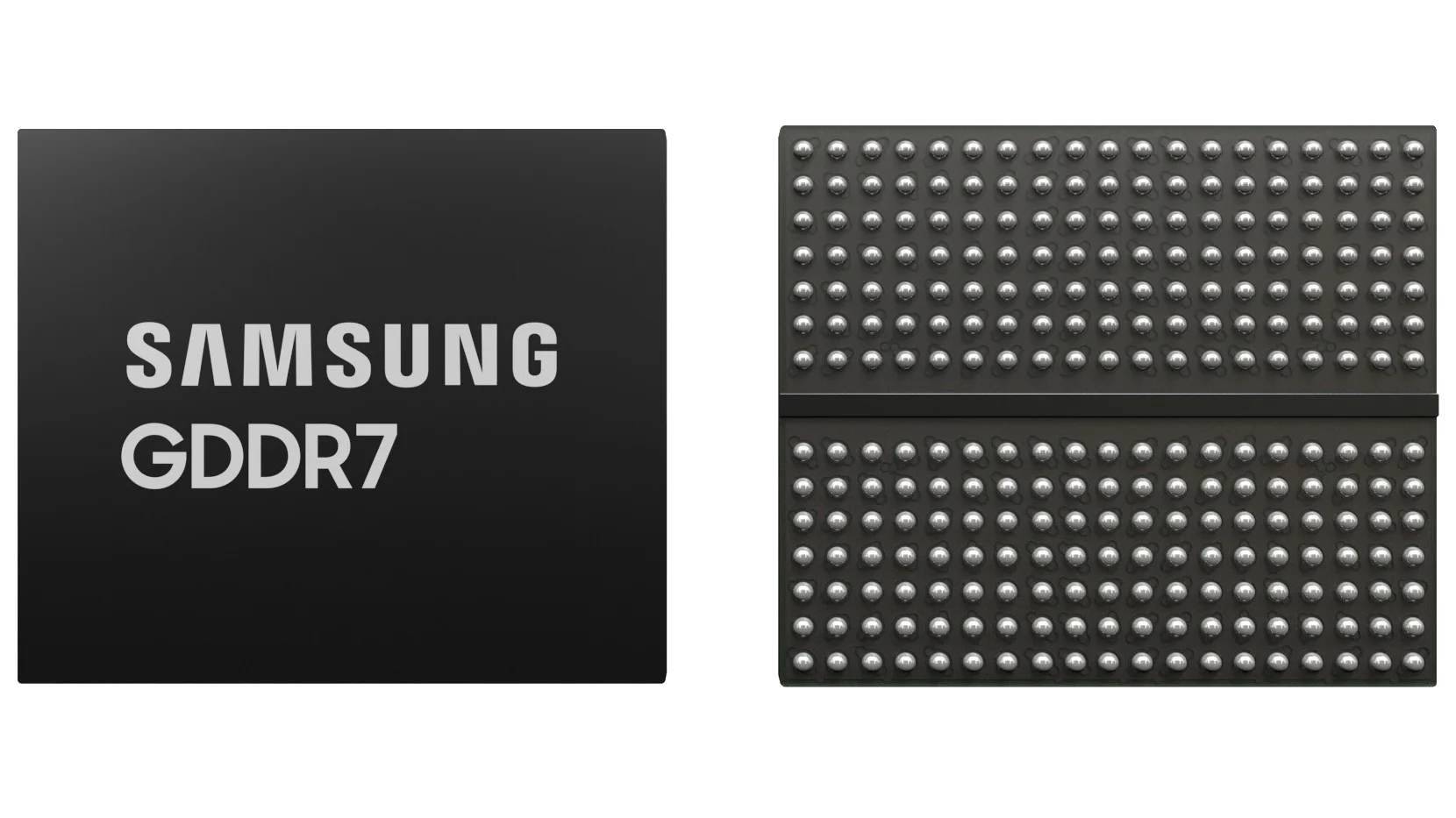GDDR7 memory doubles the memory bandwidth and chip size from the earlier GDDR6. It’s expected that next-gen graphics cards from Nvidia will make a use of it.
Seven years ago, the specifications for GDDR6 were officially announced. Now, it’s the turn of GDDR7, who’s specifications have been announced by JEDEC.
GDDR memory, or VRAM, is a type of memory which is used in graphics cards from years now. What started with GDDR3, has seen an improvement generation after generation.
The current generation of graphics cards from AMD use GDDR6 memory in them. Nvidia on the other hand uses a modified and improved version of GDDR6 in many of its graphics cards, called GDDR6X, which improves the bandwidth further.
A year ago, Micron announced that it’s working on GDDR7 memory chips. Later, Samsung revealed that it has successfully developed them. All indications suggested that the official launch will be in the first half of this year.
Now we have the official announcement about its specs.
GDDR7 Officially Announced
In an announcement, JEDEC has officially published the GDDR7 graphics memory standard (via TechPowerUp and VideoCardz).
The standard, named JESD239 for GDDR7, doubles the bandwidth over GDDR6, reaching up to 192 GB/s per device. While GDDR6 originally offered 16Gbps per pin, GDDR7 doubles it to 32Gbps, allowing faster graphics card memory.
It also doubles the independent channels from 2 in GDDR6 to 4 in GDDR7. Which too makes memory in graphics cards faster.
It also makes use of PAM3 signaling interface. Unlike NRZ signaling interface, which transmits 2 bits over 2-cycles, PAM3 transmits 3 bits over 2-cycles.
However, the biggest improvement in GDDR7 comes from its support for 32Gb (4GB) graphics memory chips. Traditionally, graphics card makers cannot increase VRAM size too much as so far GDDR6 was limited to just 16Gb (2GB) chips. The latest graphics card memory allows 4GB graphics memory chips, opening the way for more VRAM in graphics cards.
The announcement of the GDDR7 memory standard has been officially welcomed by AMD, Nvidia, Micron, Samsung and SK hynix.
Though not mentioned in the announcement (specs mention it), the GDDR7 memory will run at 1.2v instead of 1.35v used in GDDR6. With a possibility of 1.1v based lower powered chips too supported. This will reduce the power requirements for the VRAM, which is great.
Those who want to download highly detailed specifications for it can do so from here. Though, the registration is required.
Conclusion
The announcement of GDDR7 is much welcomed. It offers major improvements like double bandwidth, double capacity, lower voltages and much more.
While we are not sure if next-gen AMD graphics cards like the Radeon RX 8000 will make any use of them. But in all likelihood, Nvidia GeForce RTX 5000 lineup like the RTX 5090 could use GDDR7.
But with Radeon RX 8000 not having any flagship and Nvidia RTX 50 series delayed, don’t expect the GDDR7 memory based graphics cards to come in market soon. It might take some time for the graphics cards using it to become available for everyone.



3175x175(CURRENT).thumb.jpg.b05acc060982b36f5891ba728e6d953c.jpg)
Recommended Comments
There are no comments to display.
Join the conversation
You can post now and register later. If you have an account, sign in now to post with your account.
Note: Your post will require moderator approval before it will be visible.